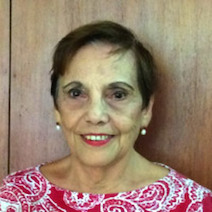


In the tidal wave of ideas bursting onto the coronavirus scene, certain issues stand out: increasing infection rates; the lack of test kits; terrifying mortality statistics' doctors, nurses, and medical personnel without protective gear; overcrowded hospitals; physical distancing; and governance.
What about the millions of urban poor living in the densely packed neighborhoods of Metro Manila? How are they affected? Can anyone explain to a family of 10 living in a 20 sqm shack how to distance themselves one meter apart? How are the 16,000 households in Baseco, Manila facing looming virus outbreaks while simultaneously suffering the impact of sudden income and job losses? Informal settlements are a COVID-19 disaster waiting to happen. (READ: Thousands of Metro Manila’s poorest left out as deadly coronavirus spreads)
Since the current lockdown prevents academic researchers from making field visits, Mary Racelis (MR) on Saturday, March 21 called Jeorgie Tenolete (JT), President of Kabalikat, a People’s Organization, on his cellphone asking him how Baseco was doing in the wake of COVID-19. The following account is JT’s assessment as told to and written by MR.
A community leader tells it like it is
“You know, we’re used to disasters and disaster preparation here. We’ve coped with everything from floods, fires, earthquakes, even volcanos – but this coronavirus is something else! We’ve never experienced anything like it!”
JT is mainly referring to the staggering challenge of mobilizing a huge community of urban poor households to combat the looming health and economic disasters facing them.
As of March 21 only one person has been confirmed positive in Baseco, an OFW who recently flew in from the Middle East and is now under hospital care. Two others have self-quarantined because they recently arrived from countries with high infection rates – a resident Korean couple and a Filipino worker returning from Europe. Another 8 persons with colds and fever are currently being monitored by health workers every 3 hours and receiving paracetamol. If they still have a fever by the third visit, they will be transferred by DSWD staff to a hospital via the ambulance parked at Baseco’s entrance. No one has died.
To a question about the surprisingly low number of infections, JT chuckles, “People have grown up here facing so many illnesses that they have probably developed immunity, even against corona!”
More soberly he acknowledges that the lack of testing may explain the small numbers. Now that the health personnel have PPEs (personal protection equipment) and thermal guns donated by VP Leni’s office and a city councilor, they are in a better position to detect colds, coughs, labored breathing, and fever. Community health workers lead the surveillance teams with one standing at the entrance applying a thermal gun to those coming into the barangay. Others walk house to house with the block coordinators tracking down people with symptoms and starting monitoring procedures.
The multi-sectoral Coronavirus Interagency Committee organized by the barangay captain meets regularly to assess the situation and decide on needed action. Since Kabalikat is a member, JT gets access to up-to-date information and enables his members to participate in the planning and decisions reached for Baseco. Donations from partner fundraisers, Urban Poor Associates, Kaya Natin Movement, and the Peace and Equity Foundation reach Kabalikat through the nearest local bank branch, enabling it to purchase supplies locally. The City of Manila and the Department of Labor and Employment (DOLE) assist through the barangay captain.
Life goes on during a lockdown. Residents adjust to the 3-hour windows allowed for visits to the market or pharmacy. Limited funds and refrigeration require daily food purchases. As for social distancing, although the barangay captain constantly warns his constituents against clustering, they appear to take this as a joke. The barangay captain retaliates with repeated tongue-lashings, upon which they disperse only to recongregate once he has left the scene. Most, residents though, abide by the government orders.
The COVID-19 threat remains amorphous. Far more alarming and immediate is the problem of feeding one’s family. Post-lockdown losses of incomes and jobs have hit the community hard. Affected are thousands of families with little or no savings: small-scale vendors in Divisoria; bus, jeepney and tricycle drivers; cargadores at the pier; workers dismissed by their shuttered companies; those still employed but unable to get to work because their companies are too far away with no transport available. (READ: Give cash to urban poor during coronavirus lockdown – experts)
People complain: while the still invisible epidemic merits serious attention, so do the masses of people who are visibly hungry now. How are they supposed to manage? What if the food packet distributions last only one week? What is the government doing about the situation? Distribution delays add further anger and resentment. All this could have been avoided, insist many, had the government given cities and barangays more time to prepare. (READ: Fighting coronavirus requires efforts to help the poor – PCIJ report)
What message would I send the President and government if given the chance? Let me offer some comments circulating in Baseco:
When the authorities realized they had to call for a lockdown of the city, they should have immediately assembled key officials, business people, and civil society representatives, including POs at local levels, to plan the future scenarios. That would have meant infinitely better preparation. How? Through onsite pre-positioning of sufficient food stocks, water, medicine, health equipment, fuel, and other priority items including cash. Communities could have been mobilized to cooperate in that effort – from planning through implementation and evaluation.
Instead, what happened? The government gave people no advance warning. By ordering an immediate lockdown, they ignored the chance to do serious stakeholder planning and community mobilization. Now, people are really suffering, not only in Baseco but in other urban poor barangays also.
Again, our leaders must confront the health threat, but also take seriously the economic crisis they have created. Otherwise, COVID-19 will bring us increased hunger, sickness, lowered body resistance, and death. Government needs to act – and fast!
The researcher’s end-note (MR):
The COVID-19 incidence appears still low in Baseco, perhaps because health threats surface slowly but more likely because genuine testing is absent. Despite delays in information and material assistance from the national government, many community groups have voluntarily come forward to address anticipated COVID-19 threats under the overall leadership of the barangay captain. All in all, the barangay is managing well in this initial phase of the crisis. Yet, vigilance is imperative to prepare for the pandemic’s predictable next phases.
Critical issues emphasize putting in place long-term support to chronically vulnerable groups. Also needed are dramatic measures to assist those families recently affected by income and job losses. Perceptions of an ill-prepared government with a top-down style and limited faith in its citizens’ capacities undermine hope. When future statistics are recited, urban poor Filipinos suspect they will make up the highest percentages of reported deaths. Baseco therefore speaks for many of its counterpart Metro Manila communities when it demands urgent attention to the disastrous economic downturn that is accompanying COVID-19. Is anyone listening? – Rappler.com
Jeorgie Tenolete is the president of Kabalikat sa Kaunlaran sa Baseco, Manila, which partners with NGO Urban Poor Associates (UPA)
Mary Racelis is a social anthropologist at the Ateneo de Manila University and a trustee on the UPA Board.